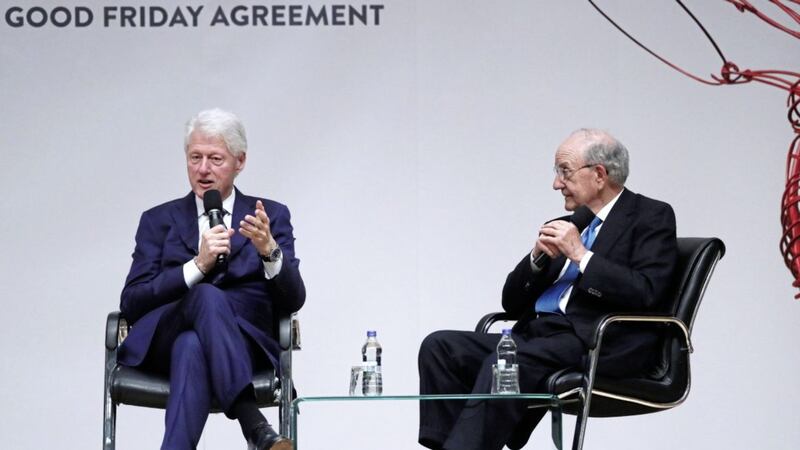World politics is arguably in its most dangerous phase this century. The next two years will define our island’s future, and international affairs, for at least two generations. We are at a precarious moment of human history.
It is bigger than any single event or issue. Bigger than 9/11. Bigger than a ‘dodgy dossier’, or Wikileaks. Bigger than Obama’s ascendancy, or Trump’s autocracy. Bigger than Facebook, or Brexit. Bigger than the demise of UN authority, or unilateral military interventions. Bigger than Russia’s interests, or China’s expansionism.
The historical danger arises from global trends that are poisoning the roots of modern democratic values and rotting the branches of structured democratic stability.
Granted, even since ancient Greece, democratic values and structures have naturally always been imperfect concepts. But they are now being routinely buried before our eyes, and frightening extremist alternatives are spoiling to own the ground.
At the individual humanitarian level, billions of citizens are barely surviving daily realities of brutality and devastation. Deep questions are mounting about our international moral and legal duties towards each other. The answers are often revealed by how our actions (particularly governmental) are motivated. However, forensic debates over the detail or procedure of individual international approaches – or even specific contexts - sometimes miss the bigger picture.
The rapidly shifting tectonic plates of geo-politics mean it is just as important to consider the overarching, longer-term historical sweep. And this is where Ireland’s role could become increasingly important.
Last August, the Irish government announced its intention to double Ireland’s diplomatic footprint around the world by 2025. While this will be economically, culturally and politically important for Ireland, it could also become strategically important in helping to influence future global diplomacy.
In high-stakes situations, understandable passions can sometimes trigger demands of political action or counter-reaction. We’ve all been there. But this critical period of history needs something altogether wiser than actions driven by anger, or policies written by protest.
In the sweep of global diplomatic developments, patience and balance are needed to measure the ebb and flow. Those qualities are never more necessary than now, during the current high tide of danger.
There is no doubt that frequent, evidence-based international activity is a growing priority– whether humanitarian, political, environmental, security, or diplomatic. Ireland now holds increasing potential to strategically frame such activity.
As with local-level political relations here, international diplomatic relations – especially between Ireland and Britain – will need to be increasingly renewed. And they will be, no doubt.
Ultimately, our collective motivation needs reorienting to the simple thought of a child here in Ireland, and whether their terrified little counterpart in places like Syria, or Yemen, or Palestine, can have the opportunity to enjoy most of the same basic chances in life. Or whether they will just be discarded to anon-existence that is marked by terror, starvation or displacement?
Speaking last week at an event hosted by Tánaiste Simon Coveney in the Lyric theatre, Senator George Mitchell spoke of this very point.
Just when he felt ready to walk away from peace negotiations in autumn 1997, Senator Mitchell realised that children here deserved the same chances as his own new-born son in the United States. And he then recommitted his energies until the Good Friday Agreement was reached six months later in April 1998. History’s spirit level was righted once again.
We should all learn from Senator Mitchell’s higher global ethic. We should all today be recommitting ourselves – through whatever means we can muster - to ensuring that children across this planet now have the same chances as our own.
While our island still experiences significant inequalities and poverty, we are, in relative terms, better off than most of today’s global population. Progress is still needed here. But a wider perspective is critical.
We should be leading by example – yes, getting our own house in better order, but always with a view to shaping the wider world.
This is a time for us all across Ireland to lift our sights beyond our own historical boundaries; to remind the world how political divisions that take lives can be countered by persistent diplomacy that saves them.
This is a time for stability to be steadily built by diplomatic and political strategies emerging from Ireland that can inform the world with creativity, rights, hope and direction.
This is a time for lighting candles, not cursing darkness. The trepidation of tomorrow’s history demands nothing less. This island has both the opportunity and the obligation to positively influence the next phase of world affairs. Failing to do so would be unconscionable.








